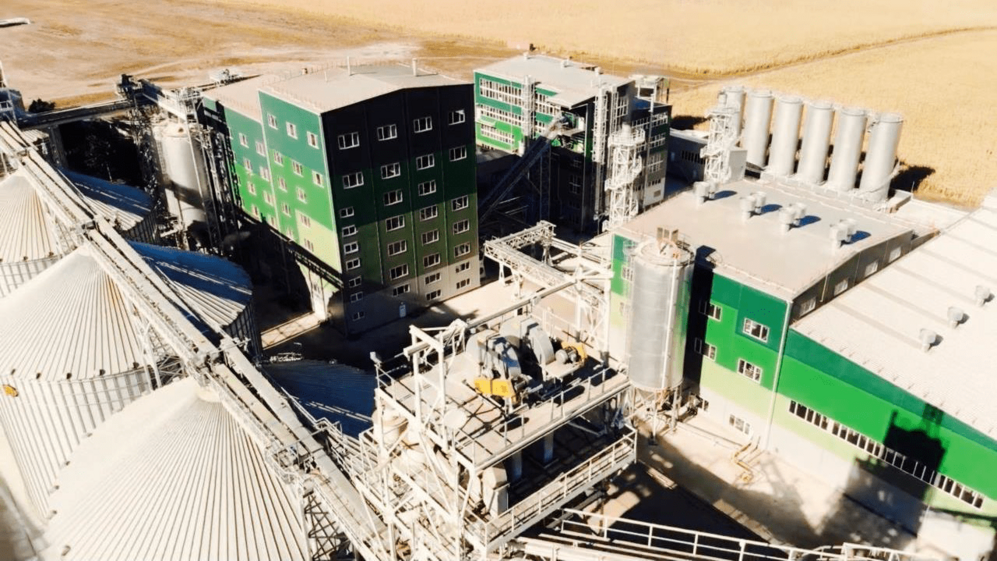The study, which was carried out by the Research Institute of Organic Agriculture (FIBL) Austria, on behalf of Donau Soja, demonstrates that by using only certified, sustainable and Non-GM Donau Soja/Europe Soya certified beans, the soymeal produced at the AdamSolSoya (ATK Group) crusher in Ukraine has hugely reduced CO2 emissions.
The study illustrates that 1kg of Europe Soya certified soybean meal by AdamSolSoya causes 0.36kg of CO2 per kg of product. In comparison, average soybean meal, produced in Europe with the usual imported soybean mix, causes 1.99kg CO2 per kg of product. This significant reduction of carbon emissions is mainly because the imported mix is linked to deforestation and land conversion of the cultivation of soybeans in regions such as the Amazon and the Cerrado. Comparing AdamPolSoya soybean meal with European soybean meal produced exclusively from an average European soybean mix the reduction in CO2 emissions is still up to 56%.
Deforestation-free and Non-GMO: key theme of Non-GMO Summit
This study was a talking point of the International Non-GMO Summit, where it was presented by Donau Soja in the context of Non-GMO, sustainable standards which go hand-in-hand with deforestation-free. Deforestation-free is especially high up on the EU agenda as a key sustainability topic, because it is now EU law that that commodities like beef, palm oil, soy beans, wood, cacao and coffee sold on the EU market should not be linked to deforestation or land conversion.
To ensure a lower environmental impact of soy, traceability or complete documentation and certification, respectively, is key. The EU is heavily dependent on soy imports; with only 8% self-sufficiency in soy (in 2020, the EU imported 34 million tonnes of soybeans) – 40% of them come from Brazil and this is a big cause for concern, as too often area cultivated for soy in Brazil is linked to deforestation. Gold standard sustainability labels, such as Donau Soja and ProTerra, guarantee that the soy used to produced feed for animals in Europe is Non-GMO and deforestation-free. In the case of Europe Soya (Donau Soja’s standard) it is of European origin and AdamPolSoya, whose soybean meal was examined for this study, processes only certified beans from Ukraine.
Connecting Europe through sustainable soy
Susanne Fromwald, Senior Advisor Donau Soja and Project Manager Protein Partnership Programme, says: “Sustainable soya can be a bridge to connect Europe, helping build home-grown food systems which are good for people and planet. Sustainable, Non-GM, deforestation and conversion-free certified soybeans have a significantly lower carbon footprint than most imported soya. Donau Soja’s consistent work with European farmers including Ukraine means that there are significant volumes of sustainable soya available, that comply and even go beyond EU requirements. ATK/AdamPolSoya sets the example for other crushers on how to be both EU compliant in a non-EU country and contribute to climate change mitigation.”
Vitaly Kushnir, ATK/AdamPolSoya’s Commercial Director, predicts: “We believe that European consumers will increasingly be guided in their food choices by the associated carbon footprint. Ukraine offers a readily available source of low-carbon Non-GM product to support this ongoing shift in food industry supply chains.”
